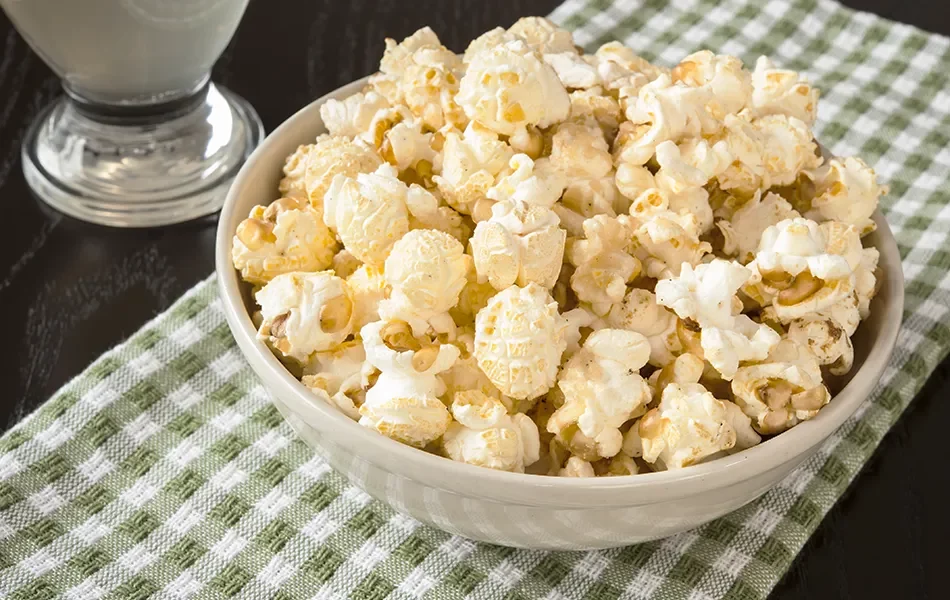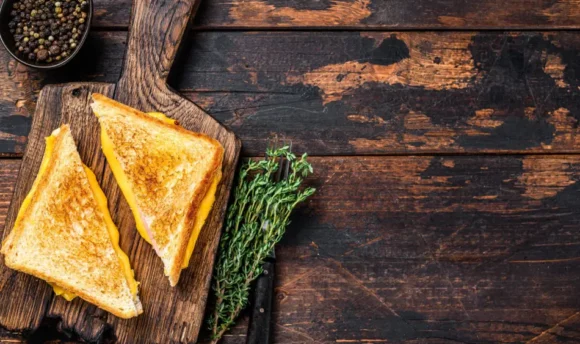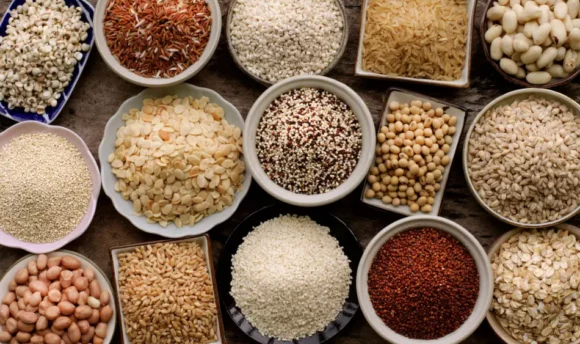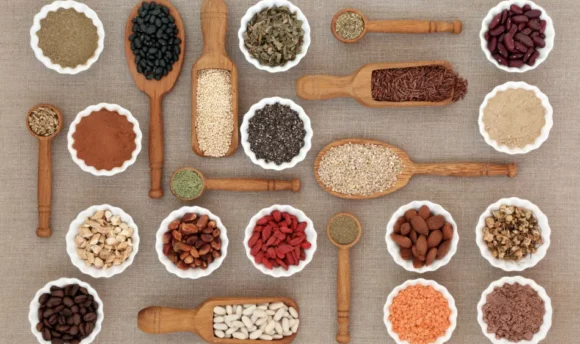Is Kettle Corn Healthy? Brands and Nutritional Value
It’s sweet and crunchy – that’s what has made kettle corn a favorite snack for many. But is it also healthy and how much should you eat at once?

Kettle corn is a fan favorite, whether watching a movie or simply looking for a delicious snack! However, because it is so sweet and tasty, are there reasons to limit your consumption of kettle corn? Are there better alternatives?
In this article, we will dive into the nutrition of kettle corn, including comparing it to butter popcorn. Read on to learn more!
What Is Kettle Corn?
Kettle corn is a type of popcorn that is covered with a sweet syrup or sugar mixture, some type of oil (such as extra virgin olive or canola oil), and salt. It results in a crunchy and sweet popcorn snack.
Is Kettle Corn Healthy?
Kettle corn is healthy because it is low in calories, but you still get a slight sweetness and saltiness that makes it a satisfying snack. In addition, a cup or two of kettle corn is a great dessert or snack option that provides some dietary fiber.
Kettle Corn Brands
Let’s compare the nutrition of some of the most popular kettle corn brands that you can find at your local grocery store!
Note that the nutritional information is for approximately one cup of popped popcorn.
| Calories (g) | Sugar (g) | Total Fat (g) | Fiber (g) | Sodium (mg) | Type of Oil Used | |
| Skinny Pop (Pre-popped) | 56 | 2.8 | 2.8 | 0.8 | 44 | Sunflower oil |
| Boom Chicka Pop (Pre-popped) | 70 | 4 | 4 | 1 | 55 | Sunflower oil |
| Popcornopolis (Pre-popped) | 65 | 6 | 3 | 0.5 | 47.5 | Coconut oil |
| Orville Redenbacher’s (Microwave) | 35.6 | 0 | 1.8 | 0.7 | 35.6 | Palm oil |
| Pop Secret (Microwave) | 30 | 0 | 2.25 | 0.5 | 18.75 | Palm oil |
| Jolly Time (Microwave) | 45 | 0 | 3 | Less than 1 | 40 | Palm oil |
Calories of kettle corn
Based on the information above, microwave popcorn varieties tend to have fewer calories than pre-popped kettle corn or store-bought kettle corn alternatives.
However, microwave popcorn has been a cause of concern in recent years due to claims that it can cause cancer because of certain chemicals in the packaging. However, is this true?
Unfortunately, according to the journal Environmental Health Perspectives, the chemical perfluorooctanoic acid (also known as PFOA) commonly found in microwave popcorn packaging has been linked with adverse health effects in rodents, such as kidney, liver, and pancreatic cancer.
This effect was also seen in small-scale studies in humans. For example, the dangerous effects were noticed in individuals who lived near a plant that produced this dangerous chemical.
Thankfully, since these studies have come out in the early 2010s, the US Food and Drug Administration (FDA) has banned the use of these chemical additives in “grease-proof” packaging, such as that found in microwave popcorn bags. This ban occurred in 2016 in the United States.
Therefore, having microwave popcorn every once in a while is relatively safe. However, to altogether avoid the risk of any adverse health effects from microwave popcorn packaging, stick with pre-popped, air-popped, or stovetop popcorn.
In terms of the nutritional differences, the variation in the number of calories is not significant enough to need to favor microwave popcorn over pre-popped. However, air-popped popcorn (where the kernels pop just from hot air) is an excellent option because it uses less oil (and therefore has less fat) than other types.
Sugar content of kettle corn
The American Heart Association recommends that women consume no more than 6 tablespoons or 25 grams of added sugar per day. In comparison, men should consume no more than 9 tablespoons or 36 grams of added sugar each day.
Some popcorn mentioned in the table above, such as Pop Secret, Jolly Time, or Orville Redenbacher’s kettle corn, are actually considered sugar-free! So these can be good options for reducing your added sugar intake.
They have zero grams of sugar primarily because they sweeten their kettle corn with Sucralose.
Sucralose is a non-nutritive sweetener, meaning it does not have any calories or any other nutrients! It is more commonly known as Splenda.
If you prefer pre-popped popcorn, look on the nutrition label for popcorn with around five grams of added sugar or less. Some pre-popped versions even use air-popped popcorn.
Of course, you can make homemade kettle corn and sweeten it just a little with maple syrup or agave nectar. You could also use an artificial sweetener such as Sucralose or a natural sweetener such as stevia leaf.
Which Is the Healthiest Kettle Corn?
Popcorn of any type contains dietary fiber. Dietary fiber is important for healthy digestion, regular bowel movements (and preventing constipation), controlling blood sugar, and more.
According to the Mayo Clinic, it is recommended that men and women aged 50 or younger consume 38 grams and 25 grams of fiber per day, respectively. Additionally, men and women aged 51 or older should aim for 30 grams and 21 grams of dietary fiber, respectively.
Therefore, to truly get the healthiest kettle corn, look for one that is made with healthy oil, such as olive oil, low in sugar and sodium, and one that you truly enjoy.
A healthy kettle corn brand could have air-popped popcorn, which typically uses less fat.
Kettle Corn vs. Butter Popcorn
Now, let’s break down the nutritional information for kettle corn versus butter popcorn based on the USDA food database.
| 1 cup of kettle corn | 1 cup of butter popcorn | |
| Calories (kcal) | 73.6 | 74.2 |
| Protein (g) | 0.767 | 1.24 |
| Total Fat (g) | 4.23 | 4.55 |
| Carbohydrates (g) | 8.54 | 7.48 |
| Fiber (g) | 0.854 | 1.4 |
| Sugar (g) | 3.99 | 0.084 |
| Sodium (mg) | 495 | 794 |
As you can see from the table, kettle corn and butter popcorn are relatively similar in calories, protein, fat, carbohydrates, and fiber. The main differences come down to the sugar and salt content.
It makes sense that kettle corn would have more sugar, with about four grams per cup, versus less than a gram of sugar in a cup of buttered popcorn. However, even four grams of sugar per cup in kettle corn is not a very high amount.
Additionally, the sodium content differs between the two types of popcorn, as kettle corn has about 500 milligrams, and buttered popcorn has almost 800 milligrams of salt.
The American Heart Association recommends consuming no more than 2,300 milligrams of sodium each day for heart health. However, they encourage individuals to limit their salt intake to less than 1,500 milligrams daily for even more optimal health.
A diet high in excess sodium above these recommendations can lead to an increased risk of heart disease, such as high blood pressure, heart attack, and stroke.
FAQs
Kettle corn is a great food option for weight loss because a one-cup serving has less than 75 calories, but it has some fiber and protein that will help you feel full after eating.
Kettle corn has about 4 grams of total fat, which is primarily saturated fat. Therefore, consuming too many servings of kettle corn can cause fat gain.
Kettle corn is about equally healthy as butter popcorn in terms of calories, fat, and carbs. However, kettle corn has much more sugar but less sodium than butter popcorn.
Overall, kettle popcorn is good for you as a dessert replacement because it is sweet but also has some nutritional benefits, such as dietary fiber.
A Word From a Nutritionist
While almost all kettle corn brands are low in calories and relatively low in fat, look for kettle corn that is lower in sugar and salt to avoid any adverse effects on your health.
Additionally, brands that specify that they are made in healthy plant oil, such as olive or avocado oil, are great options to reap the benefits of unsaturated fatty acids.
Try air-popping your popcorn at home and toss it with a small amount of vegetable oil (such as extra virgin olive oil), maple syrup, or agave nectar, and a pinch of salt. You could even add cinnamon or nutmeg for increased flavor and a boost of health benefits.
Conclusion
Kettle corn is low in calories but provides some nutrition, including dietary fiber, protein, vitamins, and minerals, though in small amounts.
It contains sodium and some fat, which is primarily saturated fat. Therefore, eat kettle corn made in extra virgin olive oil or another healthy oil to reduce the saturated fat content.
Additionally, limit the salt on your kettle corn by looking for a low-sodium variety or making your own at home and adding just a little bit of salt.
Compared to other popular desserts (like cake, cookies, pies, and ice cream) or salty snacks (such as potato chips), kettle corn is a more nutritious option, especially if you make your own air-popped popcorn at home!

















































 Select your language:
Select your language: 








